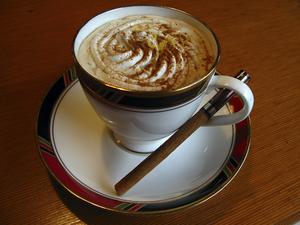Alejandro grew up in Argentina where he refined his knowledge of fine wines and the manufacturing and sales business. As a successful businessman he started selling his own brands of Argentine wine in the United States and was building a successful business. During a return trip to Argentina, Alejandro was approached by one of the oldest and most distinguished Argentine wine families. The patriarch of the family offered Alejandro the opportunity to purchase the exclusive rights to a one hundred year old Argentine brand of wine for sale in the United States. This wine was well known and established in Argentina and considered a classic example of fine Argentine wine.
This was a great opportunity for Alejandro to sell an authentic, classic Argentine wine that would be readily recognized by wine aficionados in the United States. Over the next couple of months the terms of the sale were settled and after spending over $200,000.00 for the rights Alejandro started offering this esteemed wine for sale in the United States.
The never before available brand of classic Argentine wine became a relatively rapid success and cases were being shipped to distributors across the United States. After continued expenses for marketing, and bulk purchasing of bottles, labels, and wine, Alejandro knew that the venture was going to be very successful within a few years. Then, four months later, disaster struck…
The disaster was in the form of a cease and desist letter received from a Spanish brewery. This brewery sold beer in the United States using a brand that was very similar to that of the Argentine wine. The brewery had also registered its brand with the United States Patent and Trademark Office. Although the brand of beer had been sold for years in the United States, the volume of sales was so low that Alejandro and his colleagues had never heard of it.
Suddenly, Alejandro found himself trapped between two unpalatable options. One option is spending tens of thousands of dollars in legal fees to fight to try to continue selling the classic Argentine wine. Even with the spending of tremendous sums of money, Alejandro cannot have certainty that he will prevail in the legal dispute or be able to reach an acceptable settlement. The second option is ceasing all sales of the fine wine, and writing off the purchase price of the brand, equipment, marketing, and good will with distributors as a loss. This option could result in Alejandro’s reputation and credibility suffering a blow that could ruin his business.
This could have been avoided if Alejandro had requested that his attorney prepare a right to use opinion based on a comprehensive trademark search. Such a search would have readily identified the Spanish beer using a similar brand. This would have allowed Alejandro to negotiate rights with the Spanish brewery in advance of completing his purchase of the Argentine brand. Failing that Alejandro could have purchased a different brand.
Don’t let this happen to you. Always have due diligence performed when buying a brand, domestic or foreign, for use in the United States and do not rely on industry knowledge even if you are a known operator in your industry.
If you have any questions regarding due diligence, your trademarks and related branding strategy, or any other intellectual property matters please contact Garcia-Zamor Intellectual Property Law, LLC.







